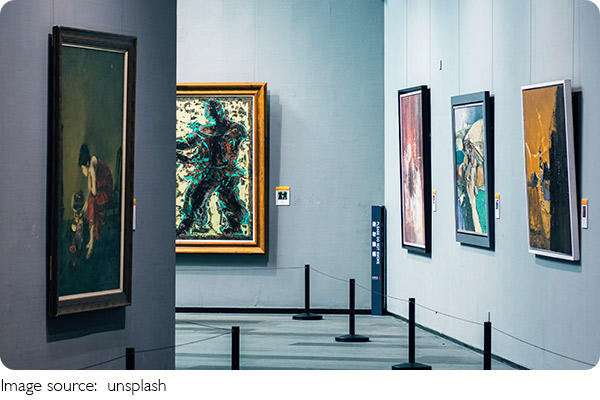Painting And Working

Nowadays, there are more and more parents focusing on their children's artistic development and wanting their children to learn painting, but they may worry whether they can find a good job in painting.
There is no need to worry, there are a lot of professions that painting majors can pursue, let's see what are there.
1. Professional Painter
After studying painting, one can venture into becoming a professional painter. This involves honing one's artistic skills, developing a unique style, and effectively conveying messages through art. Professional painters may choose to specialize in various genres such as landscapes, portraits, or abstract art. By showcasing their works in galleries, art shows, and exhibitions, painters can gain recognition and build a clientele, ultimately leading to sales and commissions.
A very popular mug, ceramic mugs have a lot to offer.
Teaches you to turn a piece of paper into a boat, airplane, or star.
6 frequently asked questions and answers about botanical taxidermy.
Unlocking interiors with layered allure.
How to shoot better photos in cities at night (and some street tips).
Simple DIY Guide: Several Flower Arranging Tips to Bring Spring to Your Home!

2. Art Instructor or Professor
Another avenue for those passionate about painting is to become an art instructor or professor. Art schools, community centers, and colleges often offer painting courses, creating opportunities for artists to teach aspiring learners. These teaching roles allow artists to inspire and guide students in exploring their creativity, nurturing and molding the next generation of artists.
3. Art Therapist
Painting has therapeutic properties that can be beneficial for individuals facing mental health challenges or emotional struggles. Pursuing a career as an art therapist combines creativity with psychology, using the medium of painting to help individuals express their emotions and promote healing. Art therapists work in hospitals, rehabilitation centers, schools, and mental health facilities, utilizing art as a tool for therapy and personal growth.
4. Illustration and Design
The skills acquired through studying painting can also be applied in illustration and design. Illustrators create visual narratives for various media like books, magazines, and advertisements, using their artistic abilities to bring stories and concepts to life. Additionally, designers often incorporate artistic elements into their work, such as in graphic design, fashion design, or interior design, in the age of the Internet, these industries are very competitive.

5. Landscape Architect
One often overlooked but highly rewarding career path for individuals with a background in painting is landscape architecture. The skills acquired through studying painting, such as understanding color theory, composition, and visual aesthetics, can be applied to designing outdoor spaces. Landscape architects work on projects ranging from urban parks to private gardens, combining artistic sensibilities with ecology, horticulture, and architecture knowledge. By blending their artistic vision with practical design skills, landscape architects have the opportunity to shape and enhance the natural world, creating lasting impressions on the communities they serve.
6. Art Curator
For those interested in the art world beyond the creation process, becoming an art curator is a compelling option. Art curators are responsible for selecting, organizing, and presenting art collections in galleries, museums, or private collections. They work closely with artists, collectors, and art institutions to create exhibitions that tell a story and engage the audience.

 · Art Team
· Art Team